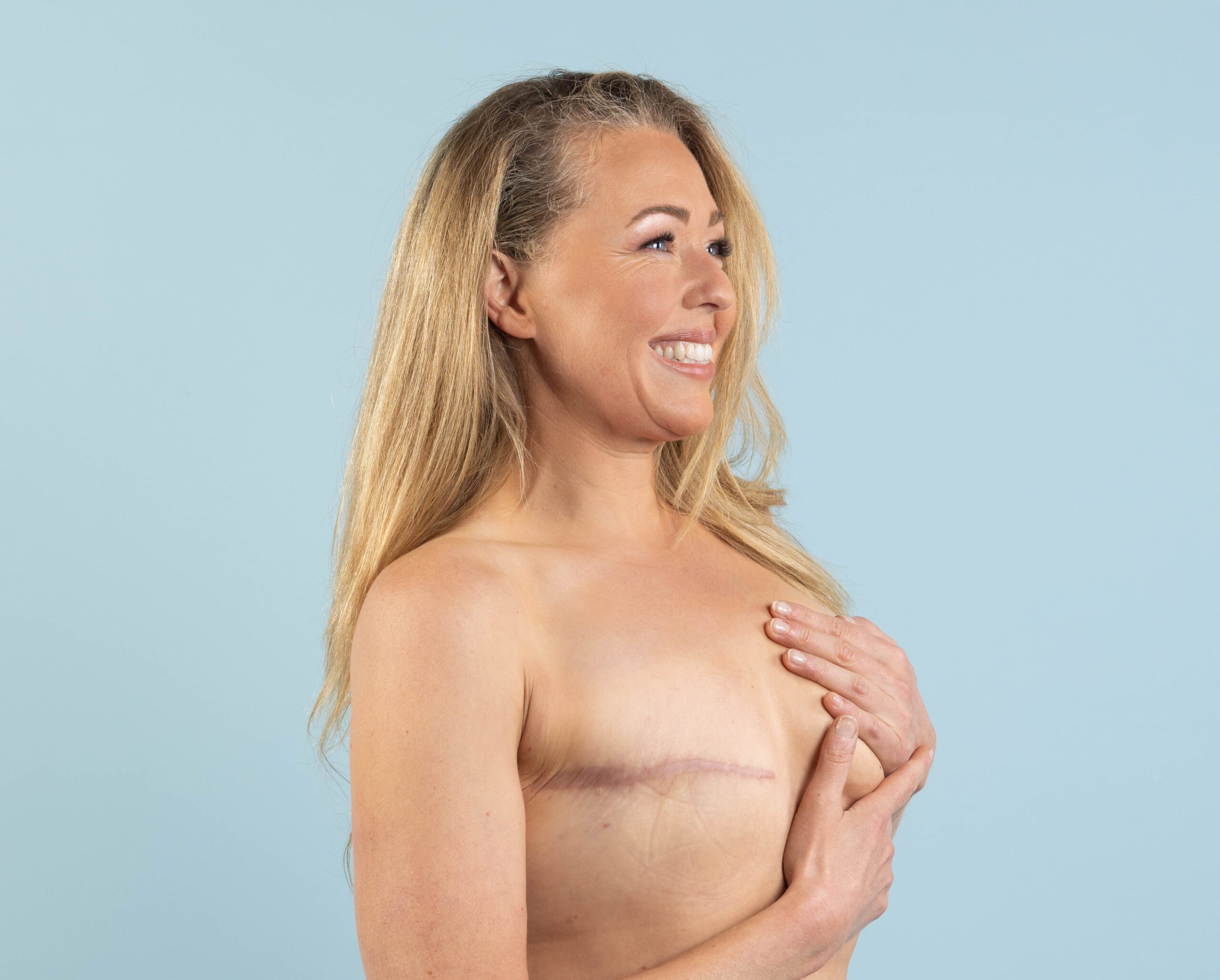This week’s multi-part guest blog is from the lovely Lucy Orchard:
Lucy is a Scar Therapist who focuses on the impact scars can have on the whole body. She has previously worked as a radiographer and retrained as a Bowen therapist in 2003, running a clinic for 20 years.
She completed her oncology training to work closely with the Worcestershire Breast Unit Haven. She has two scar therapy clinics, one in Worcestershire and the other in Buckinghamshire.
Lucy writes:
Caring for your Scar After Surgery
Weeks 1- 4
For the first few weeks allow your body to heal.
Rest, sleep, eat well and drink plenty
When you are undressed start to look at your scar. A mirror is useful for this. You begin to see that your body is amazing and working hard to heal. Some women find this difficult so take your time and do a little bit every day.
Follow the guidance of your breast team and just be on the lookout for extra redness or heat that might indicate the start of an infection. It is so much easier to deal with when caught early, so if you have any concerns at all contact a member of the team for reassurance.
Weeks 4-6
Once the scar has healed over and there is a scab formed start to touch your scar. This should be very gentle(don’t be tempted to rub!). Sometimes they can be super sensitive so pop a towel or clean piece of cloth on the skin and touch on top of that. This starts to desensitise the area. Just a minute a day, in 2 sessions of 30 seconds each, ideally, is enough to get this process going. Think about one 30 second session in the morning and another in the evening. Don’t worry if you forget one. Just start again the following day.
Numbness is normal but gradually sensation will return. Often this is not as perfect as it was before, but greatly improved.
Weeks 6-8
Once the scab has gone and healing looks good you can move on to the next stage. If it is not healing well then get the advice of your breast care nurse.
Around this time is the time to start moisturising. Scar tissue dries out more quickly than the surrounding tissues. When a part of you is injured your body protects itself from losing water by laying down more scar tissue until it is happy that it has done the job. Once the scar is closed, clean and looking more like normal skin you don’t want your body to put down even more scar tissue so you need to persuade it that it has done enough! You can do this by using a good quality moisturiser morning and evening. This can then be ‘locked in’ by applying a thin layer of medical grade silicone gel. There are several companies that manufacture this. The one I like the best at the moment is BAP Scarcare from https://www.esperehealth.co.uk/ (I have no affiliation with this company)
Stay tuned for Part Two focusing on caring for your scar after the first 6 weeks and in the meantime check out our other guest blogs from people in the know!
Photo Credit to the wonderful Chloe Morris.



![NHS Innovation Accelerator Logo 2024 [White, Transparent Background]-min NHS Innovation Accelerator Logo 2024 [White, Transparent Background]-min](https://wewearboost.com/wp-content/uploads/2022/05/NHS-Innovation-Accelerator-Logo-2024-White-Transparent-Background-min.png)

